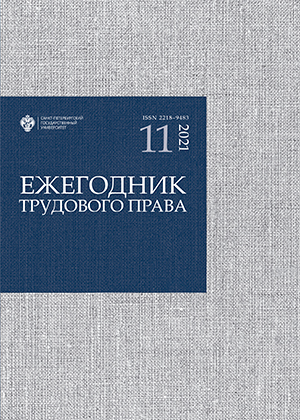Forgotten past: the legal status of the cooperative labor on domestic legislation
Abstract
The article deals with the legal status of labor cooperatives of different types on the domestic legislation. A general legal status of labor cooperatives, as well as exchange cooperatives, cooperatives sailors, et al. Analyzed the place cooperatives in the employment relationship (as an employer as well as on the side of the employee). As an employer, the artel acted in the case of an employment contract with an individual who were not member of cooperative. In the case where the artel was on the side of the employee (contractor), the article examines two options. In the first version with the artel of an employment contract. However, in this case, the employment relationship does not arise between the employer and the artel, and between the employer and each individual member of the cooperative; artel also acted as an organizational form for optimal work organization and management of labor productivity of the members of the artel. The second option would conclude with a team of contract. In this case, there were two kinds of relationships: under the contract between the customer and the contractor, in which the role of the contractor assumes the labor cooperative as a entity and cooperative relations with its members, in which the artel acted as an employer. This article discusses the possible uses of the farm in modern conditions: as a form of employee participation in the affairs of the employer, as a kind of contract labor (in particular in order to safeguard the property of the employer).
Keywords:
legislation of the Russian Empire, New Economic Policy legislation, labor cooperative, exchange cooperative, association, material liability, agency work, social partnership
Downloads
References
References
Downloads
Published
How to Cite
Issue
Section
License
Articles of "Russian Journal of Labour & Law" are open access distributed under the terms of the License Agreement with Saint Petersburg State University, which permits to the authors unrestricted distribution and self-archiving free of charge.




